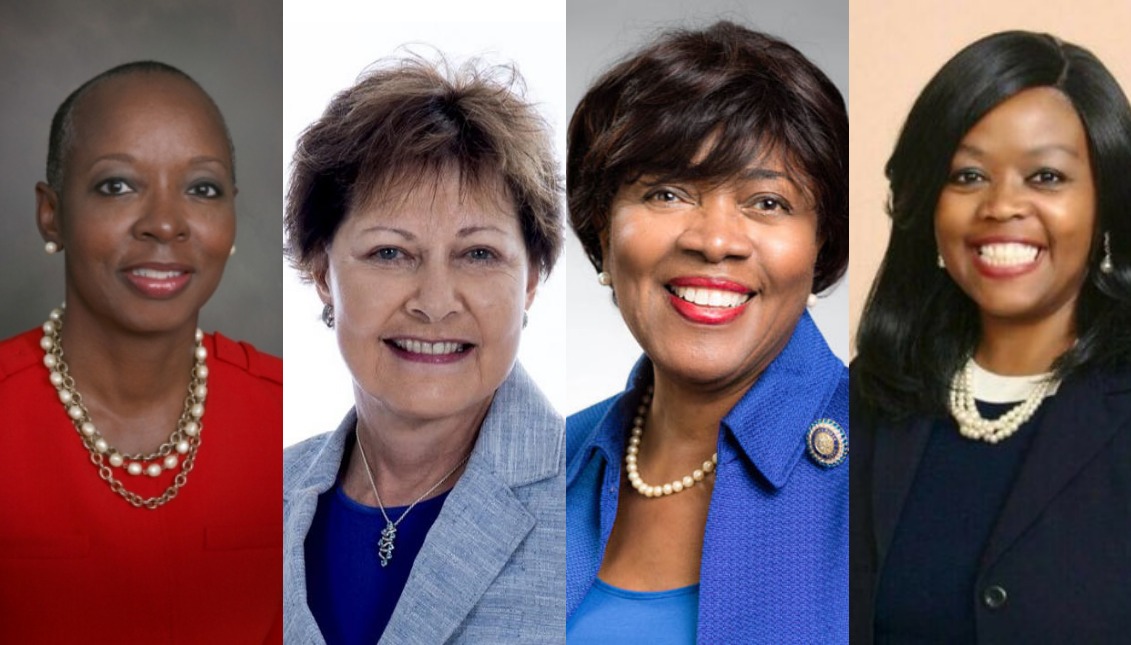
A female wave sweeps the primaries
During the first night of multi-state primaries, women broke the mold with 3 out of 5 candidates winning races in predominantly Republican territories.
The race for control of Congress becomes increasingly interesting.
The effect of the policies of the Trump Administration has broken with the schemes of previous periods, decanting into a female revolution that has been noted in the primaries before the midterm elections.
And no, we're not talking about #MeToo, but it has something to do with that.
A platform carried out by Politico (in collaboration with the Center for American Women and Politics and the Women in Public Service Project) has followed up on the 599 women who have participated or hinted at their participation in races for positions in the House, Senate or even in governorates. Of these, 63 women have already won, 57 have lost and 479 await their turn in the upcoming months.
During the primary in Texas last March, Lupe Valdez, Laura Moser, Lizzie Pannill Fletcher, Gina Ortiz Jones and Lillian Salerno were some of the names that stood out the most.
Last Tuesday, the first simultaneous elections were held in several states (North Carolina, Indiana, West Virginia and Ohio), and the result was that one-third of the nominees for the House in the four states were women; 27 were winners, of which 30% were women of color, reported Politico.
"(...) The disparity between GOP and Democratic women running overall is wide," continues Politico, emphasizing that "more than 70% of all female congressional and gubernatorial candidates are Democrats."
RELATED CONTENT
In Indiana, Courtney Tritch (IN-3), Tobi Beck (IN-4), Dee Thornton (IN-5), Jeannine Lake (IN-6) and Liz Watson (IN-9) won the primary.
On the other hand, Linda Coleman (NC-2) D.D. Adams (NC-5), Kyle Horton (NC-7), incumbent Alma Adams (NC-12) and Kathy Manning (NC-13) won in North Carolina.
Ohio was the state with the largest number of winning candidates, including Jill Schiller (OH-2), principal representative Joyce Beatty (OH-3), Janet Garrett (OH-4), Shawna Roberts (OH-6), Vanessa Enoch (OH-8), principal representative Marcy Kaptur (OH-9), Theresa Gasper (OH-10), principal representative Marcia Fudge (OH-11), Betsy Rader (OH14) and Susan Moran Palmer (OH-16), according to the Vox listing.
However, not everything is won. Many of these races will be held in heavily Republican territories, which could lower the expectations of a definitive victory for these women in November, and their achievements are still maintained in local competitions and at House level, leaving the Senate and governorships as predominantly male territories.
The difference in this panorama doesn’t have as much to do with the established disparity, but with the fact that fewer women used to throw themselves in political campaigns, as a study carried out by the School of Public Affairs of the American University in Washington had anticipated.
The American tradition has shown that young men are the ones who are related from an early age with a possibility in the political career, from their primary family nuclei to the media.
But the Hillary Clinton phenomenon and Michelle Obama’s role as “Forever First Lady” seem to have opened the borders for more women in American political life.











LEAVE A COMMENT: